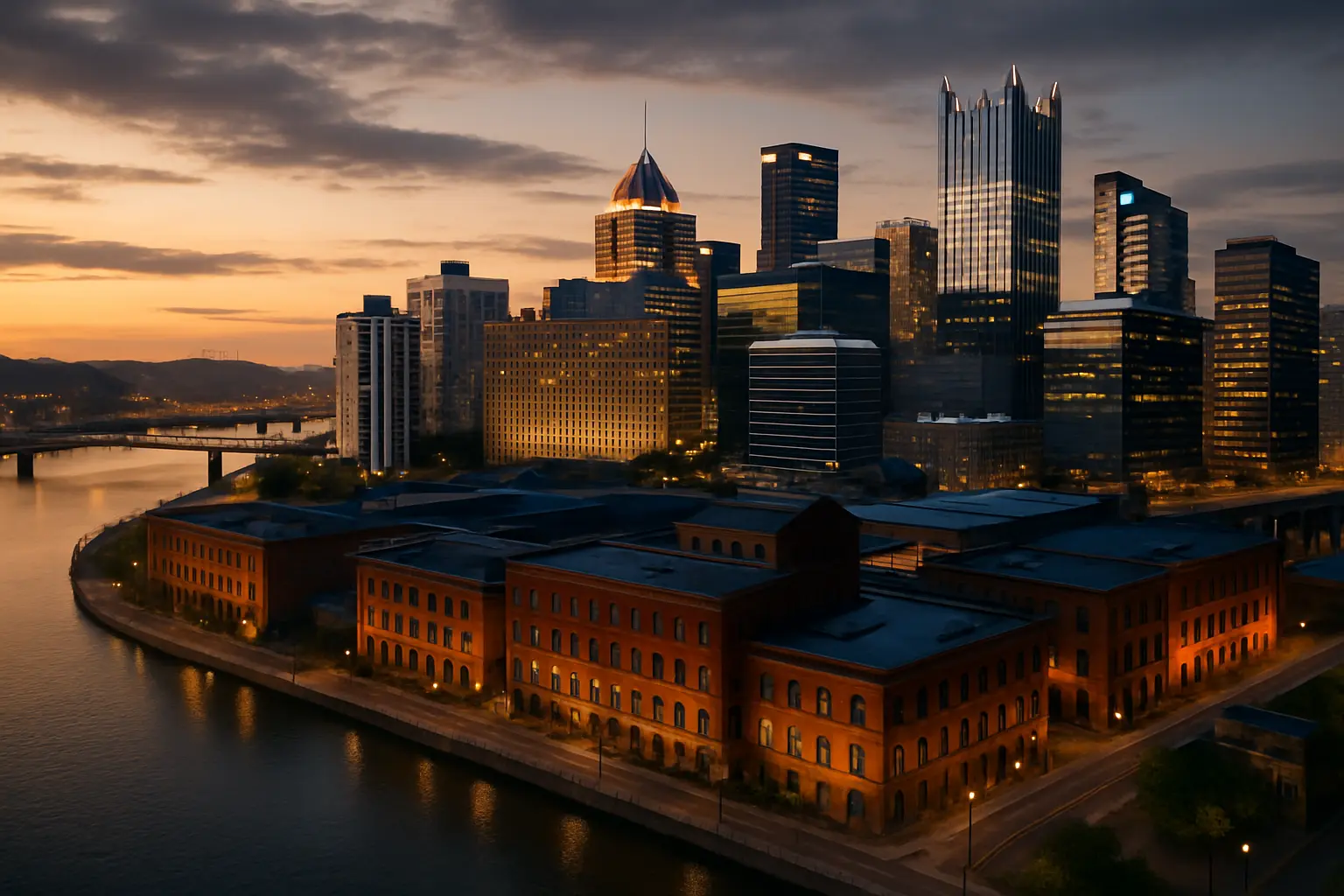From Steel to Silicon: Pittsburgh's Commercial Real Estate Renaissance
Discover how Pittsburgh's tech boom is transforming traditional industrial spaces into lucrative investment opportunities for savvy investors and business owners.

The Evolution of Pittsburgh's Commercial Landscape
Pittsburgh's transformation from a steel industry giant to a technology and innovation hub represents one of the most remarkable urban renewals in recent American history. Former industrial districts that once housed steel mills and factories are now home to cutting-edge tech companies, research facilities, and innovative startups.
The Strip District, once the city's industrial and wholesale food center, exemplifies this evolution. Historic warehouses have been expertly retrofitted into modern office spaces, while maintaining their distinctive architectural character. Tech giants and local startups alike now occupy these spaces, creating a unique blend of industrial heritage and technological innovation.
Mixed-Use Development Trends
The concept of live-work-play has taken root in Pittsburgh's urban core, driving a new wave of commercial real estate development. These integrated spaces are reshaping neighborhoods and creating vibrant communities that appeal to both young professionals and established businesses.
Key Features of Modern Developments
- Flexible Office Spaces: Adaptable floor plans that accommodate both traditional and modern working styles
- Residential Components: Luxury apartments and condominiums integrated with commercial spaces
- Lifestyle Amenities: Fitness centers, rooftop gardens, and communal spaces
- Retail Integration: Ground-floor retail spaces that serve local communities
Investment Opportunities
Pittsburgh's commercial real estate market presents compelling opportunities for investors looking to capitalize on the city's growth. Several areas have emerged as particularly promising investment targets:
High-Potential Districts
- East Liberty: Emerging tech corridor with strong appreciation potential
- Lawrenceville: Growing entertainment and cultural district
- Oakland: Educational and healthcare hub with consistent demand
- South Side Works: Riverside development with mixed-use potential
"Pittsburgh's commercial real estate market offers a unique combination of historic character and modern functionality, creating opportunities that are increasingly rare in other major markets."
Future Growth Projections
The outlook for Pittsburgh's commercial real estate market remains strong, supported by several key factors:
- Continued expansion of the technology sector
- Growing presence of major research institutions
- Increasing demand for mixed-use developments
- Strong support from local economic development initiatives
The city's commitment to sustainable development and smart city initiatives further enhances its appeal to forward-thinking businesses and investors. With its lower cost of living compared to coastal tech hubs, Pittsburgh continues to attract both established companies and startups, driving demand for commercial space.
Market Indicators
Key market indicators suggest sustained growth in the commercial real estate sector:
- Rising occupancy rates in prime locations
- Increasing rental rates in renovated properties
- Growing interest from national and international investors
- Steady pipeline of development projects
As Pittsburgh continues its evolution into a major technology and innovation center, the commercial real estate market presents significant opportunities for those who recognize the city's potential. The successful integration of historic industrial spaces with modern amenities and technology infrastructure creates a unique value proposition for investors and businesses alike.


